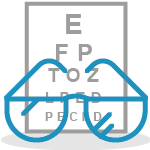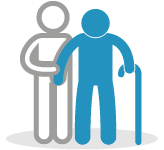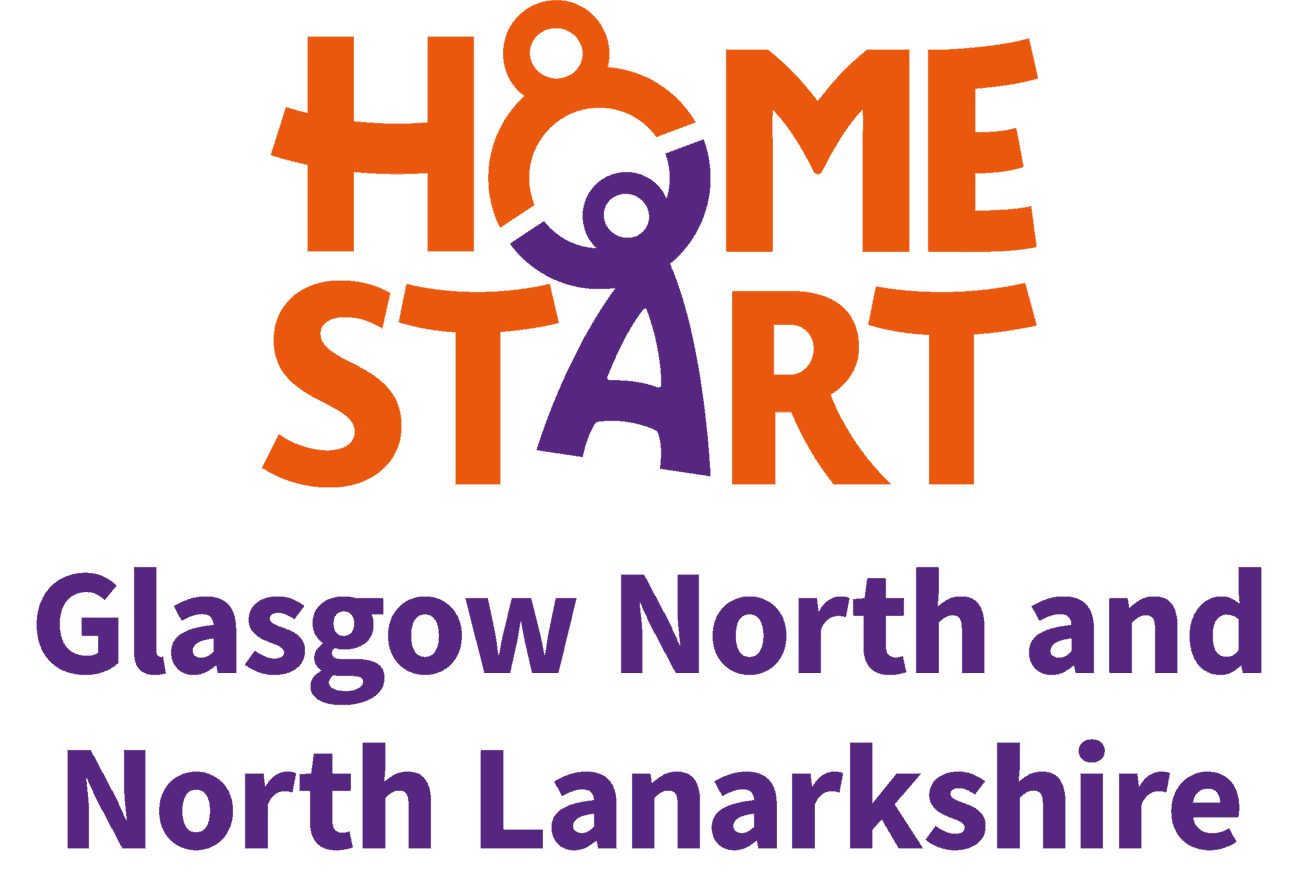We use the Right Care, Right Place model for all types of care. This ensures patients get access to the most appropriate care quickly and safely. It also helps protect our Accident and Emergency Departments (A&E) so they can look after patients with life-threatening conditions.
Your health
What Matters to You Day annual reports provide an overview of activities held throughout NHSGGC, including local activities, seminars, and social media engagement. Current and historic copies of What Matters to You Day annual reports can be accessed via the links below.
Was this helpful?
We have been thrilled to host many events over the years, highlighting some important topics. We have been able to record some of these sessions for people to view at a later date. Click on a topic to find relevant recordings and resources.
The Dying Process
Death is often a scary topic for people. We have had great conversations with lots of interesting experts about the process and what support is available for anyone at every stage of the journey.
A Day in the Life of…an Anatomical Pathology Technologist
Do you know what an Anatomical Pathology Technologist does? We’ll give you a hint – they work in our hospital mortuaries!
Whilst it may not be the career everyone imagines when they are younger, it can be a hugely rewarding and privileged role to have. This session allowed us to hear from someone with first-hand experience about what it is really like to work in a mortuary.
DNACPR Policy Update (NHSGGC)
Conversations about cardiopulmonary resuscitation can be tricky. From the mis-information that circulates, to the strength of emotion it can produce, we need a workforce which understands the intricacy of the policy and how to broach the subject in a sensitive way.
NHSGGC recently updated their DNACPR policy to clarify who should have these conversations, when they should occur and how to document them. Come along and listen to the team which have been leading this piece of work to tell you about their intentions and also the implication of this update – a must watch for all our staff!
This session is in partnership with the Realistic Medicine Team.
You can watch this on the Grand Rounds Sharepoint site Please note there may be restricted access to this video.
How to Slow Down when Someone Dies
We partnered with Pushing Up The Daises and Caledonia Funeral Aid to a host session which aimed to shine a light on how people can attend to their own wellbeing following the death of a significant person, especially one they may have cared for. During the event we discussed
- ideas for helping you to start your grieving process in a way that best serves you and the people around you,
- the pros and cons of being actively involved yourself with arrangements for burial or cremation and also perhaps the person’s body,
- practical information about the Funeral Support Payment which help people with certain benefits and tax credits to pay for a funeral,
- the laws around death and funerals, and
- why your choices are really important to help your grieving and for your long term well-being.
Let’s Talk About… Deathcare in the Queer Community
Whether it is planning a funeral, or ensuring that people know your wishes and preferences when it comes to end of life care, having people and tools to help your feel empowered is vital. For members of the Queer community there can be added anxiety about some of these aspects such as what happens with legal paperwork, and how to ensure that the people you want to be involved in care and planning can be.
This panel discussion discussed some of these questions and provided a space to discuss important topics including how we can create inclusive services which embrace and celebrate people’s identities.
Let’s Talk About… Hospices
Have you ever visited a hospice? Would it be somewhere you’d be afraid to go?
For many people the word “hospice” is associated with end of life care and death, however the truth is a little different. In this session we heard about all the amazing things hospices do to support people and those who matter to them, recognising that hospices are places of hope and warmth.
Let’s Talk About… Palliative Care
When you think about palliative care, what is the first thing that comes to mind? “Terminal illness”? “End of life”? “Comfort Care”? Whilst all these things are true, palliative care is so much more than this.
During this panel discussion, people could ask us anything – from “how did you get into this field?” to “what does a “good death” look like?” – the floor was yours!
Let’s Talk About… Paying for a Funeral
With the average cost of a funeral in Scotland being over £4000*, the financial burden of death and dying can be overwhelming. Caledonia Funeral Aid aim to support people navigating this difficult time by offering advice, as well as practical and emotional support.
During this session we discussed some of the help that is available such as the Funeral Support Payment as well as thinking about creative ways we can honour and celebrate those who have died. There was also an opportunity to ask questions to our expert.
*Source: SunLife Cost of Dying Report 2024
Let’s Talk About… Spiritual Considerations at the End of Life
We were delighted to be presenting at NHSGGC Grand Rounds on the topic of spiritual care considerations at the end of life. We are lucky to live in a multi-cultural country, with people coming from all walks of life and bringing their own beliefs and views with them. However sometimes it can be difficult to remember all the different things that we can do to support someone, especially as they approach death.
During this session, colleagues from the spiritual care team explored some of the common, yet simple things we can do as staff to support patients as well as their friends and family, and also highlight some of the resources available to support staff deliver this person-centred care.
You can watch this on the Grand Rounds Stream Channel. Please note there may be restricted access to this video.
Let’s Talk About… What Happens when Someone is Dying
This is a placeholder tab content. It is important to have the necessary information in the block, but at this stage, it is just a placeholder to help you visualise how the content is displayed. Feel free to edit this with your actual content.Dying is a normal process, but these days the process is often surrounded in mystery. During this sessions we learned more about what actually happens as someone approaches the end of their life and had an opportunity to talk to some experts.
We have also supported Demystifying Death Week which occurs at the beginning of May each year an aims to shine a light on death, dying and bereavement. You can find some past resources below
Summary Report for the Demystifying Death Week 2022
Demystifying Death Week 2022 – Resource List
Demystifying Death Week 2022 – Carers Resource List
Demystifying Death Week 2023 Programme
Demystifying Death Week 2024 Programme
Grief and Bereavement
Grief can be felt at lots of different times and in lots of different ways. We spoke to people from all walks of life about their experience and what helped them process their emotions.
Let’s Talk About… Anticipatory Grief
Whilst some deaths can be sudden and unexpected, most follow a period of illness which could last months or even years. During this time everyone can experience a wealth of emotions including anticipatory grief as we realise that a loss is coming.
This panel discussion explores anticipatory grief from various points of view including carers of those living with Dementia and parents who have a child with a life-limiting condition. There was also an opportunity to ask questions to our panel of experts who have backgrounds in various parts of this journey.
Let’s Talk About… Bereavement in the Workplace
All of us will experience bereavements throughout our lives, so it is very likely that some of these events may happen whilst you are working. Whether it is a sudden loss, or illness which develop over a longer time, trying to juggle work and personal life can be a challenge.
It can also be difficult for colleagues who don’t know what to say or do when someone is dealing with these issues, or returning after the death of someone close.
During this session we explored some of the things we can do to support each other in the workplace including things we can say, places we can signpost to and some of the policies organisations have to support their staff during these incredibly difficult times.
Let’s Talk About… Bereavement Through Suicide
Stories From 88 Days on a Tandem Around the British Coastline
In January 2022, Xani lost his sister, Alice, to suicide. Since then he and his family have been navigating their own grief journey, supported by a number of different charities including SOBS (Survivors of Bereavement by Suicide).
In the summer of 2023, Xani decided to embark on a mammoth cycling expedition as a tribute to Alice and a way to reach out to others who have been affected by suicide, whilst also raising money for some great organisations. Over 88 days he covered over 3500 miles on a tandem around the British coastline, each day joined by a new person affected by suicide. Together as they pedalled, they shared the story of their experience and the wisdom they had gained. Not only this, he has also managed to raise over £36,000 for both SOBS and PAPYRUS.
From his time on the tandem, Xani has some incredible memories but has also gained a wealth of knowledge about the impact of grief and the different ways people begin to rebuild their lives after tragedy. During this session Xani shared his own story and reflections – from the importance of conversations to meaningful ways to honour those who have died.
Let’s Talk About… Grief
Grief is natural and something all of us will likely experience at some point. During this session we looked at some of the different models that people have used to describe the grief process and also bust some myths people might have about what is “normal”.
This session is in partnership with the Beatson Cancer Charity.
Let’s Talk About… Pet Bereavement
For many people pets are family and so it is only natural to grieve their loss. Wendy Andrew founded the Scottish Pet Bereavement Counselling Service to help others recover from the death of animal companions.
During this session we talked about everything from the wealth of emotion that accompanies a decision to euthanise a pet, to speaking to children about the death of a pet. We discussed some of the common feelings that people may experience and highlight different places where support is available. There was also an opportunity to ask questions.
This session was delivered in partnership with the Scottish Pet Bereavement Counselling Service.
Let’s Talk About… Pregnancy and Baby Loss
Everyday people are left with the grief and trauma that often accompanies the loss of a pregnancy or baby shortly after birth. Whilst everyone’s situations are unique, as a society we can do much more to support one another in these difficult times, and that often begin with having a conversation.
During this session we discussed some of the common feelings that people may experience and highlight different places where support is available. There was also an opportunity to ask questions to our panel of experts who have backgrounds in various parts of this bereavement journey.
This session is delivered in partnership with Sands and Antenatal Results and Choices (ARC).
Seasons of Change
An opportunity for staff to reflect on loss, grief and bereavement
Loss, grief, and bereavement are universal emotions. Whilst death and dying is a natural part of life, throughout the Covid-19 Pandemic many more people have been touched by experiences which may have triggered feelings associated with loss and change.
To give staff an opportunity to reflect on both our collective and individual experiences, a new informal online event was created. The intention was to create a space for staff to reflect and recharge. There was no active participation necessary, rather staff are encouraged to listen and reflect on the various contemplative pieces (sessions will also have subtitles).
Staff from across all parts of health and social care were encouraged to attend, including our colleagues in Care Homes, Primary Care and Third Sector.
You can read our Summary Report for the summer session.
You can also access our Season of Change Summer Session – Resource List
Summer Session:
Autumn Session:
We have also support the To Absent Friends Festival, a week-long celebration from 1st-7th November each year to give space to celebrate and reflect on those we miss. Access some resources below.
Future Care Planning
Future Care Planning can cover lots of differnt topics – from Power of Attorney to who would look after the dog if you weren’t able to. Watch our sessions which delve into these areas and give you some tips on how to get started.
Future Care Planning – An Introduction for Staff
Anticipatory Care Planning has benefits for everyone. It empowers people to tell us what really matters; it gives friends and family an opportunity to talk open and honestly; and it helps professionals to work with everyone to create the best care and treatment plans possible. During the session we looked at tools and resources we use across NHSGGC to help promote future planning, and how our systems work together to share information.
ACP is everyone’s business, so make sure you know your role in the conversation.
Please be aware that the terms “Anticipaotry Care Planning” may be ued in thiss recording. This is the previous term for “Future Care Planning”.
Future Care Planning and Treatment Escalation Plans
How can we help our on-call teams to do the right thing in the middle of the night – when faced with a deteriorating patient that they have never met? Sometimes intervening may be of no benefit or could cause distress but making that judgement can be very difficult. It is possible that there is a plan but accessing it may be a challenge.
In this session we discussed the plans that may be available, how to find them, how to improve them and how to initiate them and have the conversation.
Please be aware that the terms “Anticipaotry Care Planning” may be ued in thiss recording. This is the previous term for “Future Care Planning”.
Let’s Talk About… Making a POA/Will
The legal parts of future planning can often be confusing, with lots of people not quite sure where to start. This session explored how to get started with Power or Attorney and making a Will, and why both of these things are so important.
We have split the recording into two parts.
Let’s Talk About… Donating Your Body to Medical Science
What do you want to happen to your body after you die? For most of us, this question makes us think about funeral, burials, cremations. But what about donating your body to help the next generation of students and researchers understand the inner workings of the human body?
During this session we heard from colleagues at the University of Glasgow to learn all about the process that takes place when someone decides to go down this road.
This is in partnership with the University of Glasgow.
Let’s Talk About… Organ Donation
Did you know that there are around 500 people each year waiting on a transplant, but only about 1% of people die in the rare circumstances where organ and tissue donation may be able to go ahead? This means that every opportunity for donation is very precious!
Hear from the experts working in NHSGGC who are coordinating this life-saving treatment. We bust myths surrounding the process, and hear just what difference an organ transplant can make to someone and the people they love.
This session was in partnership with the NHSGGC Organ Donation Team.
Other Bite-sized Training
These recordings are bite sized learning opportunities for staff which focus on a specific topic to provide an overview. They usually last between 30 minutes – 1 hour.
RecordedTopics
- Future Care Plan Clinical Portal Walk Through
- Future Care Planning Introduction
- Rockwood Clinical Frailty Score
- Power of Attorney
- Recoding Future Care Planning on EMIS
- Recording Future Care Planning on CNIS
You can find more information on our training hub pages.
Planning for the Future
When it comes to planning for the future, do you even know where to start? During this informal information session we gave you some ideas of things to think about and tools to help you plan, as well as telling you how this information can be shared with others so that everyone is in the know.
Plan More, Stress Less
When you or someone you care about becomes ill, life can become very stressful. That is why we think it is so important for people to talk to each other and make plans before this happens.
As part of our Plan More, Stress Less Toolkit, is for anyone interested in getting started with planning ahead. In this session we talk about what paperwork we can complete before a crisis arises, what actually happens when someone goes into hospital and how we can all work together to plan for a safe and timely discharge.
Hospital Checklist
This checklist will help you think about all the different forms which you can complete just now that would be useful if you were ever in hospital. This includes things like a Future Care Plan and a Power of Attorney.
A Plan to Get You Home
This resources lets you and the people who support you, think about what might need to happen in order to get you home from hospital in a safe and timely manner. This includes thinking about who could collect you from hospital and where you might need to live if you need some extra support for a short time or on a more permanent basis.
What Matters To You Day
“What Matters to You?” Day is an international initiative celebrated on or around June 6 that aims to foster meaningful conversations between patients, caregivers, and healthcare providers.
You can find more information on the initiative and recording of past seminars on our What Matters To You webpages.
Supporting Carers
Most people will help to support someone else at some point in their lives. Here are two sessions focusing on how Health and Soical Care staff can help to involve and support unpaid carers in their areas.
If you think you may be a carer and looking for support please visit our Carer Webapges.
Involving and Supporting Unpaid Carers
This session looks at the legal duties of staff working in acute, community and/or primary care. In particular we discuss how staff can encourage carers to recognise their role, how to refer to support services and the legal duty staff have to involve carers in discharge planning. We also mention some of the systems which help us record information about any known carers and share this with other services.
Involving Unpaid Carers in Care Home Life
When someone moves into a residential or nursing home, it is important that friends and family are still able to be fully involved in their lives. This may include visiting and spending time together either in this new setting, or elsewhere. It is important that friends and family are still supported in their caring role, even if it may look a little different. As everyone adjusts to this “new normal”, there are lots of conversations and pieces of information which can be helpful so that everyone understands what is happening and can share their own views.
We have also supported Carers Week and Carers Rights Day. You can find previous resources fro these awareness weeks below.
Carers Week
Carers Week occurs at the start of June each year, aiming to raise awareness of the challenges experienced by unpaid carers and host events that may be of interest and benefit to carers.
Carers Week 2022 Summary Report
Carers Week 2022 – Resource List
Carers Rights Day
Carers Rights Day occurs at the end of November each year, aiming to increase awareness of the rights of unpaid carers.
Death Cafe
A Death Cafe is a safe space where people can come together to discuss death, dying and bereavement. It is a free discussion group rather than a grief support or counselling session.
We have hosted Online Cafe in the past and there are still cafes that occur in and raround Glasgow that you may be interested in.
Glasgow Southside Death Cafe
This is an in-person cafe which usually runs the first Thursday of the month 7.30pm-9.00pm at Finns Place (Southside of Glasgow – Langside Church, 167 Ledard Road, Glasgow, G42 9QU). Free refreshments available. For more information and dates visit the Finn’s Place website. Email hello@curiousmortals.co.uk for more details.
Online Death Cafe
The online cafe runs the second Tuesday of the Month, 7.30 – 8.30pm, online via MS teams. You need to register (and make an account the first time) for this café so that you can be sent the joining link. Check out the Curious Mortals website for more details – Past and Future Events — Curious Mortals
The Mitchell Library Death Cafe
These cafes happen at the Mitchell Library in Glasgow on the last Thursday of the month, 5.30pm-7.30pm. For more details and to reserve a place please click this link – The Mitchell Library Death Cafe hosted by Creating Conversations CIC — Glasgow Life
Death Cafe at the Moon Rooms in Newton Mearns
This is a new cafe which takes place on the last Monday of the month at 7.30pm. These are hosted at The Moon Rooms, 81 Broom Road East, Newton Mearns, Uk G77 5LL. There is no need to register, just show up.
Other cafes
Death Cafes are springing up all over the world and there are some that are local. Visit www.deathcafe.com to find your nearest cafe.
Was this helpful?
Help Him Make the Right Call!
When it comes to their health, men don’t like reaching out. If you think he’s ill or hurt, make sure you all know where to go. It would ease the pressure on A&E too.
Accessing the right care is as easy as A,B,C:
- Ask yourself: Do I need to go out? For information on treating minor illnesses and injuries from home, go to NHS inform.
- Be aware: There is help for many conditions on your doorstep. Your local GP, pharmacy or optician offer a range of services.
- Call 111. If it’s urgent, or you’re unsure, call NHS 24 on 111. They’ll get you the care you need.
Was this helpful?
What is a Hate Crime?
Hate crimes are crimes that are motivated by prejudice of some kind. These are crimes where the victim is targeted because they are a member of a particular social group or have a particular characteristic, which the perpetrator has negative views or beliefs about. The legal definition is:
“Any crime which is understood by the victim or any other person as being motivated (wholly or partly) by malice or ill will towards a social group.”
With the introduction of the Hate Crime and Public Order Act (2021) in April 2024, the law recognises crimes motivated by prejudice based on someone’s:
- Age
- Disability, including physical disability, learning disability and mental health difficulty
- Race (including nationality, ethnicity and skin colour)
- Religion
- Sexual Orientation
- Transgender Identity
- Variations in Sex Characteristics
These groups suffer disproportionately as victims of harassment and crime and much of this is motivated by prejudice. In addition to the effect on the individuals experiencing the hostility, these incidents create mistrust and suspicion between communities. This makes hate crime an issue for every service and every community.
Everyone has a role to play in stopping hate crime. If an incident is perceived by the victim – or any other person – as being motivated by prejudice or hate then it should be reported as a hate crime.
Watch the following video for more information.
Reporting Hate Crime – everyone’s business
Help & Support for Victims
Many hate crimes go unreported for a number of reasons.
- For many people, exposure to abuse is a life-long experience and not perceived as crime.
- Some people may know the perpetrators and be frightened of the consequences of reporting. They may even be suffering at the hands of people claiming to be their friends.
- Some people may have a fear or mistrust of the police. Others may have previously reporting a hate crime but feel it wasn’t taken seriously.
If you are in a position to talk to people who may be at risk of hate crime then ask the question. Many people will want to be asked but are never given the opportunity to disclose.
If someone discloses a hate crime to you there are steps you can take to support that person to make a formal report even if they don’t want to be identified.
If you witness a hate crime you can contact the police and report it. This can also be done anonymously
How to Report a Hate Crime
If it’s not an emergency (if there is no immediate risk to the wellbeing of the individual) you can call 101 and make a verbal report to the police.
You can also report a Hate Crime online by going to https://www.scotland.police.uk/secureforms/hate-crime/
The form can be used by anyone who
- is the victim of hate crime
- has witnessed a hate crime, or
- is reporting the crime on behalf of someone else.
Hate Crimes can be reported anonymously. If you are working with a patient or client who does not want to give name but wants you to support them to report it you can assure them of their anonymity.
This may mean Police are restricted in the action they can take, but just reporting a perceived offense will allow Police to target resources to a particular area so you may see things like an increased police presence.
999 should be called in any emergency.
Staff Datix Reporting
All Hate Incidents should be recorded on DATIX.
A Hate Incident field should be selected and completed under the category ‘violence and aggression’. Incidents are regularly reviewed by NHSGGC’s Violence and Aggression Team and any developing trends or ‘hotspots’ can be identified and appropriate interventions made. Local managers with reviewing and approval responsibilities will interrogate the Datix reports and ensure appropriate outcomes are achieved.
FAQs about Hate Crime
What is a Hate Crime?
Hate crimes are crimes that are motivated by prejudice of some kind. These are crimes where the victim is targeted because they are a member of a particular social group or have a particular characteristic, which the perpetrator has negative views or beliefs about.
In Scotland the law recognises crimes motivated by prejudice based on
- Age
- Race (including nationality, ethnicity and skin colour)
- Religion
- Sexual Orientation
- Disability, including physical disability, learning disability and mental health difficulty
- Transgender Identity
- Variations in Sex Characteristics
Do I have to give my name to make a report?
No you don’t. Hate Crimes can be reported anonymously. This may mean Police are restricted in the action they can take, but just reporting a perceived offense will allow Police to target resources to a particular area so you may see things like an increased police presence. If you are working with a patient or client who does not want to give name but wants you to support them to report it you can assure them of their anonymity.
Can I report a Hate Crime?
Yes you can. An online hate crime report is available at: https://www.scotland.police.uk/secureforms/hate-crime/
The form can be used by anyone how is the victim of hate crime, has witnessed a hate crime or is reporting the crime on behalf of someone else.
Will the police take me seriously?
Yes they will. Hate crimes are serious incidents and Police will respond appropriately.
Do I have to report at a police station?
No you don’t. You can report it online at: https://www.scotland.police.uk/secureforms/hate-crime/ or use any one of the many 3rd Party Reporting Centres in the Glasgow area. You can find your nearest 3rd Party reporting centre here: http://www.hatecrimescotland.org/report-it/centres/
The incident happened weeks ago…can I still report it?
Yes you can. If an incident is happening there and then, you need to call 999 and report it immediately to the police, but if it happened in the past you can still call 101 – the police non-emergency number and report it or go online and complete the hate crime reporting form.
What if I’m not sure if it is a Hate Crime?
It is not your responsibility to prove that a hate crime has occurred. It is the job of the police to gather evidence from a range of sources during their investigation of an incident. This includes CCTV footage, witness statements and forensic evidence.
The Lord Advocate has told the police that an incident must be investigated as a hate crime if it is perceived, by the victim or any other person, to be aggravated by prejudice.
This means that your perceptions are important. When you report a hate crime, tell the police that you believe it was motivated by prejudice and why you think that is the case. This could be about the language used at the time, things you have heard the suspects say in the past or that certain groups are being singled out in your street / building, etc.
Why do we need Hate Crime laws?
The Scottish Government Working Group on Hate Crime gives 3 reasons for having hate crime legislation.
- Research consistently shows that some social groups are proportionately more often victims of harassment and crime and that much of this is motivated by prejudice against those groups
- Hate crimes can cause more psychological damage to a victim than crimes that are not motivated by hatred, because the victim’s core identity is being attacked. This personalises the crime and can cause the victim a greater amount of distress.
- Hate crime is socially divisive. Such crimes need to be particularly condemned in order to avoid a situation in which the relevant group feels victimised as a group, with members in constant fear of attack. Prejudice against groups can lead to a number of consequences, ranging from fear of crime and inability to participate in normal social activities to paranoia and vigilantism
Staff Resources & Training
We Stand Against Hate – A3 posters and A5 leaflets encouraging hate crime reporting. Contain QR code link to the Hate Crime web page. For copies contact equality@ggc.scot.nhs.uk

Responding to Hate Incidents – An Employee Guide A guide for NHSGGC employees on the organisational position in relation to hate crime, what to do if you are a victim of or witness to a hate incident or if a hate incident is disclosed to you in the course of your work.
Hate Crime Reporting – E learning module The module covers topics such as types of hate crime, why hate crimes go unreported, why hate crime laws are needed and support for victims. Go to the Learn Pro home page and search for GGC 056 Hate Crime.
Hate Crime Awareness Session on MS Teams This short session gives participants an understanding of what hate crime is and how to report if witnessed in the workplace. It is an important safeguarding learning opportunity for all members of staff working in frontline roles. To view dates and to register, please visit our Staff Training page.
Active Bystander Training on MS Teams Promoted as part of our Stand Against Racism campaign, this training session provides skills to challenge unacceptable behaviours, including those which may have become normalised over time. Our anti-racism campaign is based on the words of our own staff from their experiences at work. To find out more or register for training, visit our web page.
Lord Advocate’s Guidelines: Offences aggravated or motivated by prejudice – LAG: Offences aggravated or motivated by prejudice | COPFS
Personal Safety As well as complying with our health and safety policies and processes, there are a number of things that staff can do themselves to keep safe. Tips include:
- Raising the alarm – if you are in imminent or immediate danger or a crime is in progress, call Police Scotland on 999. If a crime has already happened, report this to Police Scotland by calling 101. You can also report crime online on the Police Scotland Website. Most smartphones also have an inbuilt Emergency SOS feature – consider setting this up on your personal mobile.
- Be alert and aware of the people around you – avoid ‘autopilot’ and pay attention to your surroundings. If wearing headphones, make sure you are still able to hear outside noise. Keep your head up and out of your phone when you’re walking. Walk with purpose and confidence. If you receive verbal racial abuse outside of work, do not engage with the aggressor – continue progressing to your intended destination or to another place of safety. Take a description of the aggressor and note your location, date and time – this information is important when reporting to Police Scotland. If you receive physical abuse, attempt to maintain your own safety – you may have to use reasonable force to aid your escape.
- If you receive verbal or physical abuse in the workplace: verbal and physical aggression from patients and visitors should be managed using The Standards of Behaviour Protocol – as well as reported to Police Scotland and reported on DATIX. Violence Reduction Training is available across GGC to support staff at risk of violence and aggression.
Further reading and guidance:
- Keeping safe | Crimestoppers (crimestoppers-uk.org)
- Violence Reduction Service (Health & Safety)
- Violence Reduction Service – Toolbox Talks
- Lone Workers Personal Safety – Toolbox Talks.docx
- Violence Reduction Service – Education and Training
- Violence Reduction Service – Post-Incident Checklist
- Online Reporting Form | Police Scotland
Risk Assessment Where a member of staff or groups of staff report risk and request support – for example, if there is a heightened risk of racist or Islamophobia incidents – it will often be appropriate for their manager to conduct a risk assessment. These risk assessments can be useful to identify actions to that will improve the safety of staff, patients and service users and provide them with additional reassurance that we are prioritising their safety.
Some key tips
- The Health and Safety Executive advise on 5 Steps to Risk Assessment. The link Managing risks and risk assessment at work – Overview -HSE will support and guide staff on how to manage a risk, which will include verbal and physical racist attacks.
- The Generic Risk Assessment Template should be used to record the hazard, risks, controls and risk ratings relating to racist abuse.
- Reviewing the risk assessment is also crucial to ensure the controls remain appropriate to reducing the risk as low as reasonably practicable.
- There is risk assessment training available in the Training and Education link.
- Safety Health and Wellbeing Practitioners can support managers with this. You can find their contact details in this document: local Health and Safety Practitioner
Please note, it is important not to confuse a hazard and a risk as these are completely different. For example:
- A Hazard is – verbal racist comments from an abuser.
- Risk is – the abused is subject to mental health issues and fear of physical attack.
Reporting Hate Crime – what colleagues are saying
Andrew Wyllie, Chair of LGBTQ+ Staff Froum

Hate crime has no place within our NHS. Our LGBTQ+ staff forum is committed to fostering an inclusive environment where all staff feel safe, valued, and respected. Any form of discrimination or prejudice is not acceptable and we are pleased to support the organisation taking a zero tolerance approach to hate crime. Let’s work together to create a healthcare system that truly reflects the diversity of our communities and where everyone can thrive.
Ann Cameron-Burns, Employee Director

Nobody comes to work to face abuse because of who they are, what religion they follow, who they choose to love. I’m proud that we all stand together to stop hate. That’s the only way to eliminate it – give it no place to hide and grow.
Alastair Low, Hate Crime Lead, Equality & Human Rights Team

It’s really important that people understand what a hate crime is so that when they see or hear it they can call it out and challenge it. We have the systems in place in NHSGGC to deal quickly with the perpetrators of hate crime so we can all step up and make a difference.
Sue Silva, Joint Chair, Black & Minority Ethnic Staff Network

It is vital that every member of staff feels confident and supported to speak up against discrimination in all its forms. By working together, we can build a workplace where diversity is respected, and everyone is treated with dignity. Our BME Staff network is here to listen, share experiences, and ensure concerns are addressed promptly, so that every voice is heard, and everyone can thrive.
Professor Jann Gardner, Chief Executive

Many hate crimes go unreported due to fear, mistrust or not recognising that a crime has been committed. If we witness or experience an incident that we believe is motivated by prejudice then it is vital that we report it as a hate crime. This will ultimately help create a safer workplace and build stronger communities for us all.
Natalie Smith, Interim Director of Human Resources & Organisational Development

We all need to stand up to Hate Crime when we see or hear it. If left unchallenged it can take hold and undermine the great community we’re all part of. Our NHSGGC family is 42,000 strong. We can use that strength to make sure hate has no place in our workplace.
Was this helpful?
Information on all the vaccinations available, including general child and adult ones, COVID, flu and travel.
Was this helpful?
This website aims to be a one stop shop for information relating to Care Homes. The Care Home Collaborative Web Team manage the website and it’s development. You can share your free learning opportunities and resources on our website.
Please see NHSGGC Website Guides to help make your web content easier to read and present it in a more accessible and consistent way.
If you’d like information published or amended on our website please complete the appropriate form below.
Was this helpful?
We have collated a variety of useful resources that provide guidance and support for you and your baby.
Feeding Your Baby
Breastfeeding support in Greater Glasgow and Clyde.
Breastfeeding and your business
All businesses and organisations in Scotland open to the general public and who allow children, are under legal obligation to allow breast and bottle feeding. Read more about the law and find out how to become a breastfeeding friendly business.
Breastfeeding Friendly Venues
We have produced a map showing all breastfeeding friendly venues in Scotland.
Breastfeeding Network
Online support, factsheets and a fountain of knowledge on drugs in breastmilk.
BfN Greater Glasgow and Clyde | Instagram, Facebook | Linktree
Home-Start Glasgow South
Home-Start Glasgow South is a family support charity offering support that helps to give young children the best possible start in life.
Drop in Groups at Pollok library on Fridays – support from a BFN Volunteer will also be available at Home-Start Warm Place Pollokshaws on Fridays, and at the Warm place Castlemilk on Monday afternoon. For more info, go to
What’s On at Warm Place Castlemilk – Homestart Glasgow South
Support is also available to Muslim families online on the 4th Thursday of every month.
Infant Feeding – NHSGGC
These are pages on the NHSGGC website which we hope you will find useful.
National Breastfeeding Helpline
For independent, confidential and non-judgemental support available 24 hours a day, and with 1 to 1 support anytime.
Tel: 0300 100 0212
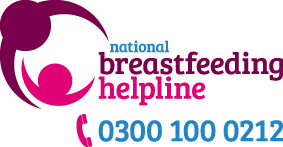
UNICEF
The UNICEF UK Baby Friendly Initiative has information regarding Baby Friendly Initiative Accreditation and Resources. As well as a safe guide to bottle feeding, responsive bottle feeding and infant formula Information please see links below:
[Links to follow]
Health and Wellbeing Information
Family
Child Smile
National toothbrushing programme available throughout Scotland, offered to all nursery aged children.
Every child is provided with a dental pack containing a toothbrush, a tube of toothpaste, and oral health messages on at least six occasions by five years of age.
Happy Healthy Tots
Information on the Health Visiting Service, feeding your child, parental health and wellbeing, your child’s health and emotional wellbeing, Family Nurse Partnership and local information.
HENRY
HENRY is a brilliant programme for parents, helping them to support a healthy, happy start for their children and lay the foundations for a brighter future.
Visit the website for further details regarding the programme, and watch out for groups and workshops in the South.
Glasgow Libraries
Glasgow libraries offer a wide range of health and wellbeing support. Visit the following website for the list of groups in your local library.
Glasgow City HSCP Your Support Your Way
An online resource that provides information, advice and guidance about local services and groups to improve lifestyle, independence and health and wellbeing in the community.
Your Support Your Way Glasgow – Homepage (yoursupportglasgow.org)
Lifelink
Information on wellbeing and counselling services, based in Pollok Civic Realm and Melissa House Brand Place Ibrox.
Self referral is available.
Thrive Under 5
Thrive Under 5 (TU5) is a project funded by Scottish Government monies and delivered by Health Improvement staff from NHSGCC. Through a whole systems approach to tackling child poverty in selected places, the programme aims to support children under the age of five to achieve a healthy weight.
Mental Health Support
Dads Rock
Provide support to Dads to increase parenting skills and increase their confidence . Please see the website and Facebook page for full list of services and groups.
Breathing Space
A confidential phone line for anyone in Scotland over the age of 16, feeling low, anxious or depressed.
Tel: 0800 83 85 87
Daisy Chain Early Years Project
Offers early intervention to improve health and wellbeing for under 12s and families based in Govanhill.
Daisy Chain Early Years Project | CrossReach
CrossReach Daisy Chain Early Years Project – Parents & Carers Group on Facebook
The Daisy Project
Providing an integrated domestic abuse advocacy and support service.
Glasgow Women’s Aid
Project supporting women, children and young people experiencing domestic abuse.
Gilded Lily
Supports women and girls in Govan and surrounding areas of Glasgow to become more confident, creative, employable and enterprising by providing workshops, training programmes.
Home-Start Glasgow
Home-Start North Glasgow and North Lanarkshire
Home-Start North is a family support charity offering support that helps to give young children the best possible start in life, and to help improve lives of families and children.
Home – Home-Start Glasgow North & North Lanarkshire
Home-Start Glasgow North and North Lanarkshire | Glasgow | Facebook
Home-Start Glasgow South
Home-Start Glasgow South is a family support charity offering support that helps to give young children the best possible start in life, and to help improve lives of families and children.
Home-Start also offer support to Dads and have groups in South Glasgow. See their website for a full list of support available.
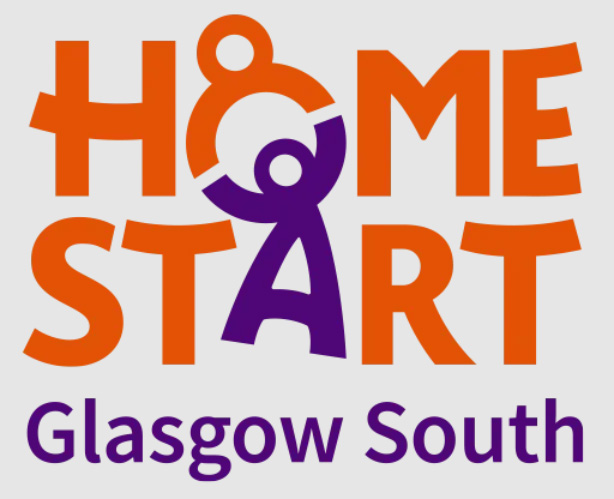
Health In Mind
Offering a pathway of services to support you with a range of mental health problems including anxiety, depression and the impact of trauma.
Health in Mind | Support and services (health-in-mind.org.uk)
Lifelink
Lifelink can offer support to anyone who is struggling to cope with everyday stress or is feeling anxious or depressed. Issues such as debt, bereavement, addiction, self-harm/suicide and problems with relationships or family can all interfere with a persons’ quality and experience of life.
NSPCC
Offers support for parents who may be suffering from mental health issues.
PANDAS
PANDAS offer support to families and their networks who may be suffering with perinatal mental illness, including prenatal (antenatal) and postnatal depression. They offer a variety of person centred support.
Scottish Domestic Abuse Hotline
Hotline offering a pathway of services to support a range of mental health problems including anxiety, depression and the impact of trauma.
Tel: 0800 027 1234
The Women’s Centre
For over 25 years The Women’s Centre Glasgow has worked out of our Maryhill community hub to create a safe space for all women in Glasgow. We are here to support and empower our community by offering opportunities to strengthen women’s choices in life and social opportunities. We welcome women of all identities and are committed to fighting discrimination. We believe in the power of working together and aim to provide online and in-person services for mental and physical wellbeing which is accessible to everyone.
Family Support & Information – Glasgow City
3D Drumchapel
3D Drumchapel was established in 1997 to make a difference in the lives of children and families in Drumchapel by providing support, strengthening relationships and empowering families to make positive change.
All of our sessions services and support are FREE for families living in Drumchapel, Knightswood & Yoker.
Bookbug
Families can enjoy sharing stories, songs and rhymes with their little ones. Bookbug Sessions take place in libraries and community venues across Glasgow. Please see link for local venues and times for sessions.

Children 1st
Supports children and families to prevent families reaching crisis point, and to recover from trauma and harm. Please see website for full list of services.
Early Years Scotland
Support for children from pre birth to 5 years . They have Early Years Practitioners who work directly with children and families to deliver Stay, Play and Learn sessions all over Glasgow.
See website for details of the sessions.
Stay Play and Learn Details | Early Years Scotland
Early Years Scotland on Facebook
In the South we have sessions at SWAMP as part of THRIVE Under 5.
- Pollok on Friday mornings – for a place call Louise on 07375 044012
- Govanhill on Fridays – call Joanne on 077854 55794
- Gorbals on Monday afternoons – call Joanne on 077854 55794
Giggle ‘n’ Grow
Supporting early years, and children with literacy, music movement and play. Providing free activities such as Move dance grow, Family Fun Days and Bookbug . For all activities please see website for groups in your area.
Glasgow Life
Glasgow Life provides a range of services and activities for families. Please see the links below to services in the City.
Govan HELP
Support families with Children In the Govan area services include; Family Support, Play Therapy, Volunteering & Training Opportunities, as well as Adult Counselling and The Govan Pantry. See website link Facebook for full range of services.
We are Govan HELP – Supporting children, parents and families
Home-Start – Govan, Pollokshaws, and Castlemilk
Family support to help overcome a range of issues such as isolation, mental health difficulties, bereavement, family breakdown, addiction, physical ill-health, support to dads and more. Running weekly groups in South Glasgow.
Jeely Piece Club
Working with families and children in Castlemilk and across Glasgow, they specialise in fun play and learning . Please see website and Facebook page for full list of services.
Make Do & Grow
Govan based social enterprise supporting families in Glasgow through creativity and play. They also have a toy library on 901 Govan Road, G51 3DN.
Please see website for full list of services and groups
Make Do and Grow – Supporting families in Govan and beyond (makedogrow.co.uk)
One Parent Families Scotland
A national charity supporting single parents and separating parents in Scotland. See website for further details.
End Young Parent Poverty: Top up the Scottish Child Payment (opfs.org.uk)
One Parent Families Scotland – Glasgow on Facebook
Helpline: 0808 801 0323
Parent Club
Website offering advice and support on every aspect of parenting.
Tel: 0800 0308 003
South West Arts and Music Project – SWAMP
SWAMP works with children, young people, and older people in the Greater Pollok area. They offer a range of services and groups for the local community serving all ages. See website for a full list of their services and groups.
South West Arts & Music Project – Scottish Community Alliance
Stepping Stones for Families
For over 35 years, our charity has been working alongside communities in West and South West Scotland to address the impacts of poverty and inequality in the lives of children, young people, and families.
We believe in the potential within every individual to create positive change. Our Family Support and Flexible Childcare services help families at the early stages of their journey, building strong foundations for a brighter future.
Village Storytelling
Pollok based organisation who offer access to storytelling and creative opportunities for families. Including Imagine Lab sessions at their base in Pollok, which is a sensory storytelling sessions aged for 0-5 years. See website for list of all sessions.
The Women’s Centre
The Women’s Centre provide a range of activities for mums and babies in their creche facility.
They have a programme of activities that can be accessed through their website and by contacting them direct.
Financial Information
If you are worried about money, then please speak to your Health Visitor or Family Nurse who’ll be happy to discuss any issues with you and can refer you to a relevant service.
Cost of Living Support
Below is a link to a comprehensive list of some recommended Government approved pathways that are available to you, for free, impartial and confidential money advice and support. Information on local support services for Glasgow City and other Scottish Local Authority areas can be found here.
Cost of Living Support – Glasgow City Council (gosshosted.com)
Glasgow Community Food Network
Map of local food services.
Find Local Food Services | Glasgow Community Food Network (glasgowfood.net)
Glasgow HELPS
Directory listing activities and services across Glasgow.
Social Security Scotland
Social Security Scotland – Homepage
See website below for information on benefits including 5 Family Payments.
Pantry Guide
Pantries are shops which provide low cost food in community hub setting, and also offer wrap-around support services within the local area.
In the South West of Glasgow, we have pantries in Pollok, Nitshill, Crookston, Cardonald, Kennishead, Govan, Castlemilk and Gorbals. All are listed in the directory below. Days and opening times vary.
Worried About Money
Leaflet offering advice and support to help make ends meet.
Was this helpful?
Newsletters
- Issue 31 February 2026
By signing up to our mailing list you agree to be contacted by the Care Home Collaborative. We will not share your details with anyone else.
- Sign up to our mailing list for regular updates
- Unsubscribe from our mailing list.
2025 Newsletters
- Issue 20 February 2025
- Issue 21 March 2025
- Mobile Skills Unit March 2025 – Special Edition
- Issue 22 April 2025
- Issue 23 May 2025
- Issue 24 June 2025
- Issue 25 July 2025
- Issue 26 August 2025
- Issue 27 September 2025
- Issue 28 October 2025
- Issue 29 November 2025
- Mobile Skills Unit October 2025 – Special Edition
- Issue 30 December 2025
By signing up to our mailing list you agree to be contacted by the Care Home Collaborative. We will not share your details with anyone else.
- Sign up to our mailing list for regular updates
- Unsubscribe from our mailing list.
2024 Newsletters
- Issue 9 February 2024
- Issue 10 March 2024
- Issue 11 April 2024
- Issue 12 May 2024
- Issue 13 June 2024
- Issue 14 July 2024
- Issue 15 August 2024
- Issue 16 September 2024
- Issue 17 October 2024
- Issue 18 November 2024
- Issue 19 December 2024
By signing up to our mailing list you agree to be contacted by the Care Home Collaborative. We will not share your details with anyone else.
- Sign up to our mailing list for regular updates
- Unsubscribe from our mailing list.
2023 Newsletters
Latest News
- Scottish Government letter published 25th July 2025 advice on ‘Oral Swabs with Foam Heads’
- NHSGGC Interim Mouth Care Equipment Guidance (May 2025)
- Polypharmacy Guidance: appropriate prescribing, making medicines safe, effective and sustainable 2025 – 2028
Was this helpful?
Care Home Teams
Our Purpose and Approach
The Care Home Collaborative (CHC) works in partnership with all care homes across Greater Glasgow and Clyde. We learn from and work with care home teams and their communities to help residents live their lives according to what matters to them.
We invite care homes to contact us to share their experiences. We can offer specialist advice, tailored training and support to carry out projects. This allows us to share good practice, highlight care home stories and celebrate success.
Find out more information about the care home teams in your area below.
Central Hub – All care homes within Greater Glasgow and Clyde
Central Hub is a dedicated resource. The service is available to all who live, visit and work in Care Homes across Greater Glasgow and Clyde.
Quality Improvement
We support Care Home teams across greater Glasgow and Clyde to build capacity for Quality Improvement. We also co-develop/design QI Projects and deliver training for Scottish Improvement Foundation Skills programme (SIFs).
Advanced Practice
Our CHC Lecturer Practitioner (LP) supports the governance and education of Care Home Advanced Nurse Practitioners (ANPs) employed by Health and Social Care Partnerships (HSCPs) and independent Care Homes. We support ANPs Continuing Professional Development (CPD) through sessions in clinical practice, leadership, facilitation of learning, evidence research and development.
Caring about Physical Activity (CAPA)
We offer support to care homes to encourage movement in all aspects of a resident’s daily life. We facilitate a Meaningful Activity Network NHSGGC where care staff support each other, share ideas and share ‘good news stories’. We collaborate with care homes to develop quality improvement projects to promote physical activity for care home residents. We can help you access useful resources.
Dementia Nurse Specialist
In partnership with care homes across Greater Glasgow and Clyde, we will translate the national strategic vision for dementia care. This vision stems from Scotland’s National Dementia Strategies and the Promoting Excellence Framework. Formal evidence-based training on dementia care is offered, as well as delirium prevention and early intervention training sessions. Furthermore, a number of quality improvement projects are ongoing to enhance practice and transform the experience of care home life for people living with dementia.
We can offer Dementia Friendly Environment assessments which support care homes in making their environments as dementia friendly as possible on request via our contact form.
Poole Activity Level (PAL) training is also available on request via our contact form. Poole Activity Training (PAL) is a meaningful activity programme, developed for people living with cognitive impairment and dementia. Using the PAL holistic tool, we can establish what point the person is. This can help staff and residents identify activities which will be most suited to residents. The aim of this is to ensure that all residents can participate in activities, regardless where they are in their dementia journey
Food Fluid and Nutrition (FFN) Team
The team provides holistic support for the nutritional wellbeing of residents. We assist the rollout of the Malnutrition Universal Screening Tool (MUST) and GGC local pathway for management (MUST Step 5). Also on offer are training resources which cover IDDSI guidelines, dysphagia management, food fortification, diabetes, weight management, mealtime experiences and documentation training to support food and fluid charts. We support FFN QI projects.
Infection Prevention and Control (IPC)
Our IPC Team provide advice and support aligned to the sector specific Care Home IPC Manual and aimed at supporting the local application of IPC practice within the home. The team offer training resources based on the ten elements of standard infection control precautions and developed to compliment education already available to staff as well as signposting to national IPC training resources. The team are always interested to hear of IPC innovations and are keen to work in collaboration with care homes where IPC projects or small tests of change are being considered.This is a placeholder tab content. It is important to have the necessary information in the block, but at this stage, it is just a placeholder to help you visualise how the content is displayed. Feel free to edit this with your actual content.
Palliative Care Nurse Specialist
The CHC Palliative Care Nurse Specialist offers advice, support and education, on all aspects of palliative care, to care home teams across NHSGGC. Available to guide, support and collaborate with care home colleagues on palliative care related quality improvement projects, we are a care home community team resource that promote the delivery of high standards of holistic palliative care for the care home community.
Person Centre Care and Engagement Lead
We are centering quality conversations about “What Matters To You?” for residents and staff of care homes across Greater Glasgow and Clyde. We can help you share your ‘good news stories’ about meaningful activity and are keen to celebrate your success!This is a placeholder tab content. It is important to have the necessary information in the block, but at this stage, it is just a placeholder to help you visualise how the content is displayed. Feel free to edit this with your actual content.
Tissue Viability Nurse Specialist
We offer guidance and support for pressure ulcer prevention, wound care and skin tear education. Analysis of training requirements, help meeting recommendations post-inspections and guidance with the implementation of tissue viability quality improvement projects are also available.
Glasgow City Care Home Nursing Team – Care homes in Glasgow
Glasgow City Care Home Nursing Team is a dedicated resource for care homes within Glasgow City
The team includes, Team Lead, Practice Development Nurses (PDNs), Registered Nurses, Care Home Liaison Nurses (CHLNs) and Care Home Support Workers.
The team can be accessed by contacting your Care Home Liaison Nurse(CHLN) or Practice Development Nurse (PDN) aligned to your Care Home.
Alternatively, email us on ggc.chlnreferral@ggc.scot.nhs.uk
Hub 5 – Care homes in East Dunbartonshire, East Renfrewshire, Inverclyde, Renfrewshire and West Dunbartonshire.
HUB 5 is a dedicated nursing team which includes, Nurse Team Lead, Registered Nurses and Care Home Support Workers. The team works in partnership with care homes across East Dunbartonshire, East Renfrewshire, Inverclyde, Renfrewshire and West Dunbartonshire.
We support the specialists in our Central Hub to deliver sessions on:
- Caring About Physical Activity (CAPA)
- MUST and MUST Step 5 pathway and calculations
- Palliative Care for Carer
- Peer-to-peer support networks
- Peer support for Quality Improvement projects
- Scottish Ballet Duet
We encourage requests from care home teams, and engage with other services and partner organisations to design peer-to-peer support and learning opportunities for Nursing and Care Support Staff, across a range of issues including
- Catheter Care
- Confirmation of Death
- Hydration
- Record Keeping
- Story Gathering and What Matters to You Conversations





